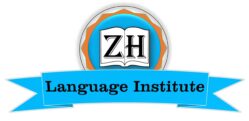Learning Arabic can open many doors to new opportunities, both personal and professional. Here are a few reasons why you might want to consider studying Arabic

Learning Arabic can open many doors to new opportunities, both personal and professional. Here are a few reasons why you might want to consider studying Arabic
Arabic is widely spoken. With over 400 million native speakers, Arabic is the fifth most widely spoken language in the world.
Arabic is an important language in the Middle East. The Arab world is a major player in international politics, business, and culture, and a knowledge of Arabic can help you understand and engage with the region.
Arabic is the language of the Quran. For many people, studying Arabic is a way to deepen their understanding of Islam and connect with the Muslim community.
Arabic is a Semitic language and is closely related to other Semitic languages such as Hebrew, Aramaic, and Amharic.
Learning a new language is always beneficial for cognitive development and personal growth.
Arabic is a language of rich history and culture, learning it can help you to appreciate the culture and understand the history of the Arab world.
Arabic Language Syllabus According to Levels
Arabic Level A1 Syllabus
The A1 level of the Common European Framework of Reference for Languages (CEFR) is the beginner level, at which learners are able to understand and use familiar everyday expressions and very basic phrases aimed at the satisfaction of needs of a concrete type.
A typical A1 level Arabic syllabus may include the following topics and language skills:
Introduction to the Arabic alphabet: learners will learn the basic shapes and sounds of the letters of the Arabic alphabet and how to write them.
Basic vocabulary: learners will learn common words and phrases related to everyday topics such as introducing oneself, asking for directions, talking about family and friends, etc.
Basic grammar: learners will learn the basic structure of Arabic sentences, including subject-verb-object word order, and will practice forming simple sentences.
Pronunciation: learners will learn the basic rules of Arabic pronunciation, including the use of the glottal stop, long vowels, and the various forms of the definite article.
Listening and speaking skills: learners will practice listening to and speaking simple Arabic phrases and sentences, with a focus on accurate pronunciation and intonation.
Reading and writing skills: learners will practice reading and writing simple Arabic words and phrases, and will learn to read and write short, simple sentences.
Cultural awareness: learners will learn about the Arab culture, customs, and traditions.
Classroom communication: learners will learn basic classroom language such as asking and answering questions, giving and following instructions, etc.
Arabic Level A2 Syllabus
The A2 level of the Common European Framework of Reference for Languages (CEFR) is the lower intermediate level, at which learners are able to understand sentences and frequently used expressions related to areas of most immediate relevance (e.g. very basic personal and family information, shopping, local geography, employment).
They can communicate in simple and routine tasks requiring a simple and direct exchange of information on familiar and routine matters.
A typical A2 level Arabic syllabus may include the following topics and language skills:
Vocabulary: learners will expand their vocabulary to include more advanced words and phrases related to everyday topics such as shopping, travel, work, and leisure.
Grammar: learners will learn more advanced grammar structures, such as the different forms of the verb "to be," the use of prepositions, and the formation of the past, present, and future tenses.
Pronunciation: learners will continue to practice and refine their Arabic pronunciation, focusing on the correct use of diacritical marks and the various forms of the definite article.
Listening and speaking skills: learners will practice listening to and speaking more complex Arabic phrases and sentences, with a focus on understanding and expressing themselves in more nuanced ways.
Reading and writing skills: learners will practice reading and writing more complex Arabic texts, and will learn to read and write longer, more detailed sentences.
Cultural awareness: learners will continue to learn about the Arab culture, customs, and traditions, and will learn to understand and appreciate the cultural context of the language they are learning.
Classroom communication: learners will continue to practice and expand their skills in classroom communication, such as asking and answering questions, giving and following instructions, participating in group discussions, etc.
Media: learners will be exposed to various authentic Arabic materials such as news, TV shows, and songs, to expose them to the language as it is used in real-life situations.
Arabic Level B1 Syllabus
The B1 level of the Common European Framework of Reference for Languages (CEFR) is the intermediate level, at which learners are able to understand the main points of clear standard input on familiar matters regularly encountered in work, school, leisure, etc. They can deal with most situations likely to arise whilst travelling in an area where the language is spoken. They can produce simple connected text on topics which are familiar or of personal interest. They can describe experiences and events, dreams, hopes & ambitions and briefly give reasons and explanations for opinions and plans.
A typical B1 level Arabic syllabus may include the following topics and language skills:
Vocabulary: learners will expand their vocabulary to include more complex words and phrases, and will learn to use idiomatic expressions and colloquial language.
Grammar: learners will learn more advanced grammar structures, such as the use of the passive voice, the subjunctive mood, and the relative pronoun.
Pronunciation: learners will continue to practice and refine their Arabic pronunciation, focusing on the correct use of diacritical marks and the various forms of the definite article.
Listening and speaking skills: learners will practice listening to and speaking more complex Arabic phrases and sentences, with a focus on understanding and expressing themselves in more nuanced ways.
Reading and writing skills: learners will practice reading and writing more complex Arabic texts, and will learn to read and write longer, more detailed sentences.
Cultural awareness: learners will continue to learn about the Arab culture, customs, and traditions, and will learn to understand and appreciate the cultural context of the language they are learning.
Classroom communication: learners will continue to practice and expand their skills in classroom communication, such as asking and answering questions, giving and following instructions, participating in group discussions, etc.
Media: learners will be exposed to various authentic Arabic materials such as news, TV shows, and songs, to expose them to the language as it is used in real-life situations.
Writing skills: learners will learn how to write a formal letter, an email, a short essay and a report.
Presentation skills: learners will learn how to present a topic of their own choice in class and how to answer questions about it.
Arabic Level B2 Syllabus
The B2 level of the Common European Framework of Reference for Languages (CEFR) is the upper intermediate level, at which learners are able to understand the main ideas of complex text on both concrete and abstract topics, including technical discussions in their field of specialization.
They can interact with a degree of fluency and spontaneity that makes regular interaction with native speakers quite possible without strain for either party. They can produce clear, detailed text on a wide range of subjects and explain a viewpoint on a topical issue giving the advantages and disadvantages of various options.
A typical B2 level Arabic syllabus may include the following topics and language skills:
Vocabulary: learners will expand their vocabulary to include more complex words and phrases, and will learn to use idiomatic expressions and colloquial language.
Grammar: learners will learn more advanced grammar structures, such as the use of the passive voice, the subjunctive mood, and the relative pronoun.
Pronunciation: learners will continue to practice and refine their Arabic pronunciation, focusing on the correct use of diacritical marks and the various forms of the definite article.
Listening and speaking skills: learners will practice listening to and speaking more complex Arabic phrases and sentences, with a focus on understanding and expressing themselves in more nuanced ways.
Reading and writing skills: learners will practice reading and writing more complex Arabic texts, and will learn to read and write longer, more detailed sentences.
Cultural awareness: learners will continue to learn about the Arab culture, customs, and traditions, and will learn to understand and appreciate the cultural context of the language they are learning.
Classroom communication: learners will continue to practice and expand their skills in classroom communication, such as asking and answering questions, giving and following instructions, participating in group discussions, etc.
Media: learners will be exposed to various authentic Arabic materials such as news, TV shows, articles and songs, to expose them to the language as it is used in real-life situations.
Writing skills: learners will learn how to write a formal letter, an email, a short essay and a report.
Presentation skills: learners will learn how to present a topic of their own choice in class and how to answer questions about it.
Translation: learners will learn how to translate from Arabic to other languages and vice versa.
Literature: learners will be exposed to literary texts, both classical and modern, to improve their comprehension and appreciation of the language.
Learning Begins With Us
The ZH Language Institute Foreign Language Institution is a premier language learning centre that offers a wide range of language courses for students of all ages and skill levels. Our institution is dedicated to providing high-quality language education to help our students reach their goals, whether it’s for personal or professional development.
We offer a variety of languages including Spanish, French, German, Italian, Chinese, Japanese, and many more. Our courses are designed to meet the needs of different learners, from beginners to advanced speakers. Our curriculum focuses on developing the four key language skills of speaking, listening, reading, and writing.
Our experienced and qualified instructors use a variety of teaching methods to make the learning process fun and engaging. We use interactive activities, real-life scenarios, and authentic materials to help our students develop their language skills in a natural and authentic way.
We also offer small class sizes to ensure that each student receives personalized attention and support. Our classes are held in comfortable and well-equipped classrooms, which provide the perfect learning environment.
In addition to our regular classes, we also offer intensive courses, conversation clubs, and cultural activities to provide students with a well-rounded language learning experience. We also have a resource centre that provides students with access to a wide range of materials, including textbooks, audio and video resources, and online resources.
Furthermore, we offer online classes and virtual classes, which provide flexibility and accessibility to students who are unable to attend regular classes. Our online classes are live, interactive and follow the same curriculum as our in-person classes.
Overall, the ZH Language Institute Foreign Language Institution provides a comprehensive and enjoyable language learning experience for students of all levels. We are dedicated to helping our students achieve their language learning goals and to become confident and proficient speakers of their chosen language.
Classes

Arabic Language Course is Offered by Speakeng India.

Arabic Language Course is Offered by Stanford Language Institute.

At Language Fluent you can learn Arabic online from anywhere. Our curriculum begins from the most basic lessons and no prior knowledge of Arabic is necessary except interest and passion for learning the language.

This course is exclusively designed to come closer to fluency. The grammar teaches you to understand the language of the Quraan. The course is designed to help the students learn and master the Arabaic langauge using creative and effective methods of learning.

We are very glad that we could help our candidates who sign up for these classes as it helps us to teach those more and with the same enthusiasm.
© 2025 coursetakers.com All Rights Reserved. Terms and Conditions of use | Privacy Policy